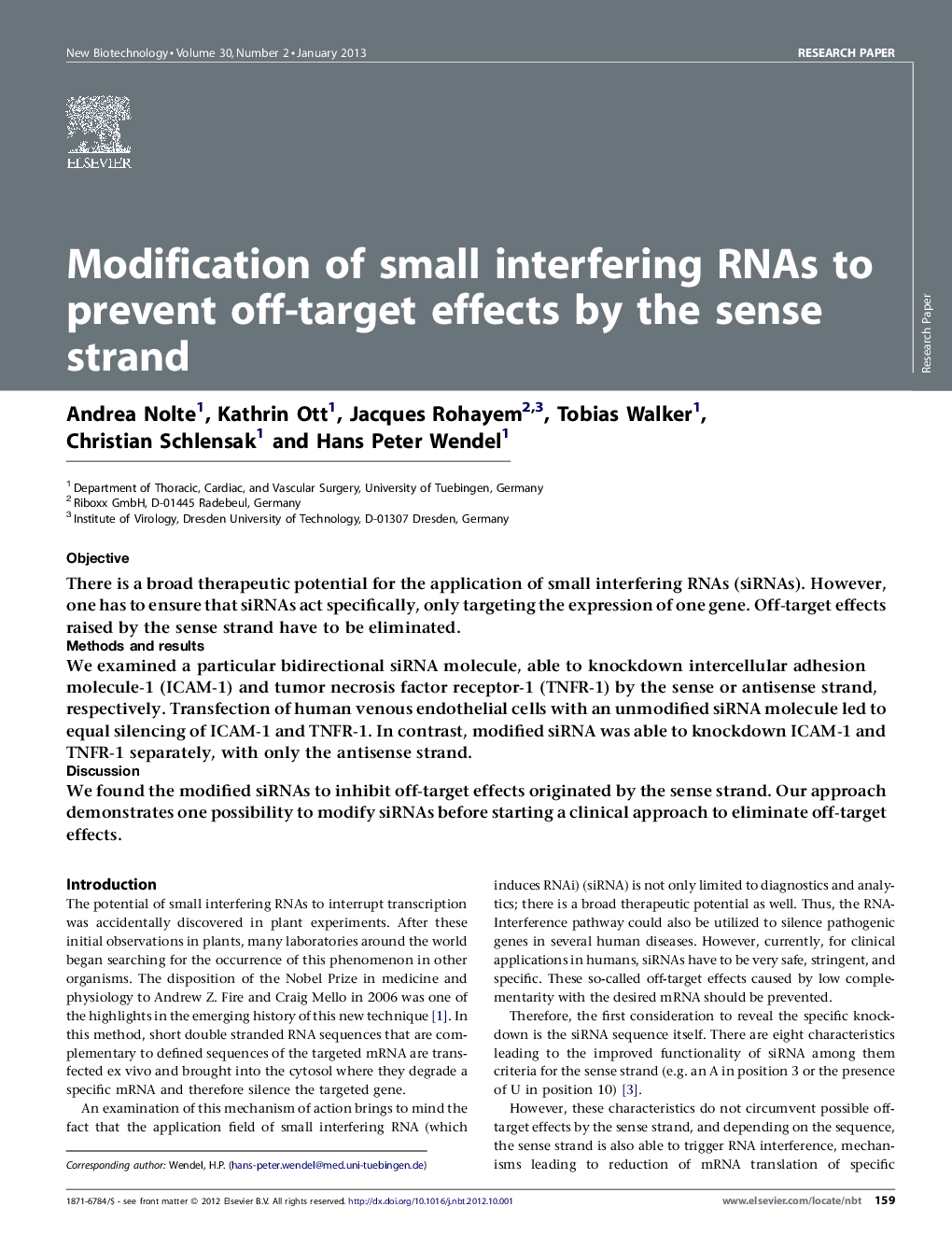| Article ID | Journal | Published Year | Pages | File Type |
|---|---|---|---|---|
| 33415 | New Biotechnology | 2013 | 7 Pages |
ObjectiveThere is a broad therapeutic potential for the application of small interfering RNAs (siRNAs). However, one has to ensure that siRNAs act specifically, only targeting the expression of one gene. Off-target effects raised by the sense strand have to be eliminated.Methods and resultsWe examined a particular bidirectional siRNA molecule, able to knockdown intercellular adhesion molecule-1 (ICAM-1) and tumor necrosis factor receptor-1 (TNFR-1) by the sense or antisense strand, respectively. Transfection of human venous endothelial cells with an unmodified siRNA molecule led to equal silencing of ICAM-1 and TNFR-1. In contrast, modified siRNA was able to knockdown ICAM-1 and TNFR-1 separately, with only the antisense strand.DiscussionWe found the modified siRNAs to inhibit off-target effects originated by the sense strand. Our approach demonstrates one possibility to modify siRNAs before starting a clinical approach to eliminate off-target effects.
► The modification is easy to conduct on already validated siRNAs. ► The modification of siRNAs is a prerequisite for their clinical application. ► The modification was able to uncover, that ICAM-1 is not silenced by this siRNA. ► The modification enhances the feeding of the antisense strand into RISC.
